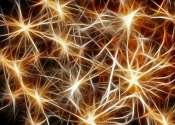Restoring mobility by identifying the neurons that make it possible
Researchers at EPFL were able to get paralyzed rodents walking again by stimulating the animals' damaged spinal cords. This promising treatment has already helped paraplegics regain mobility during clinical trials at Lausanne ...
Jul 20, 2020
0
113








